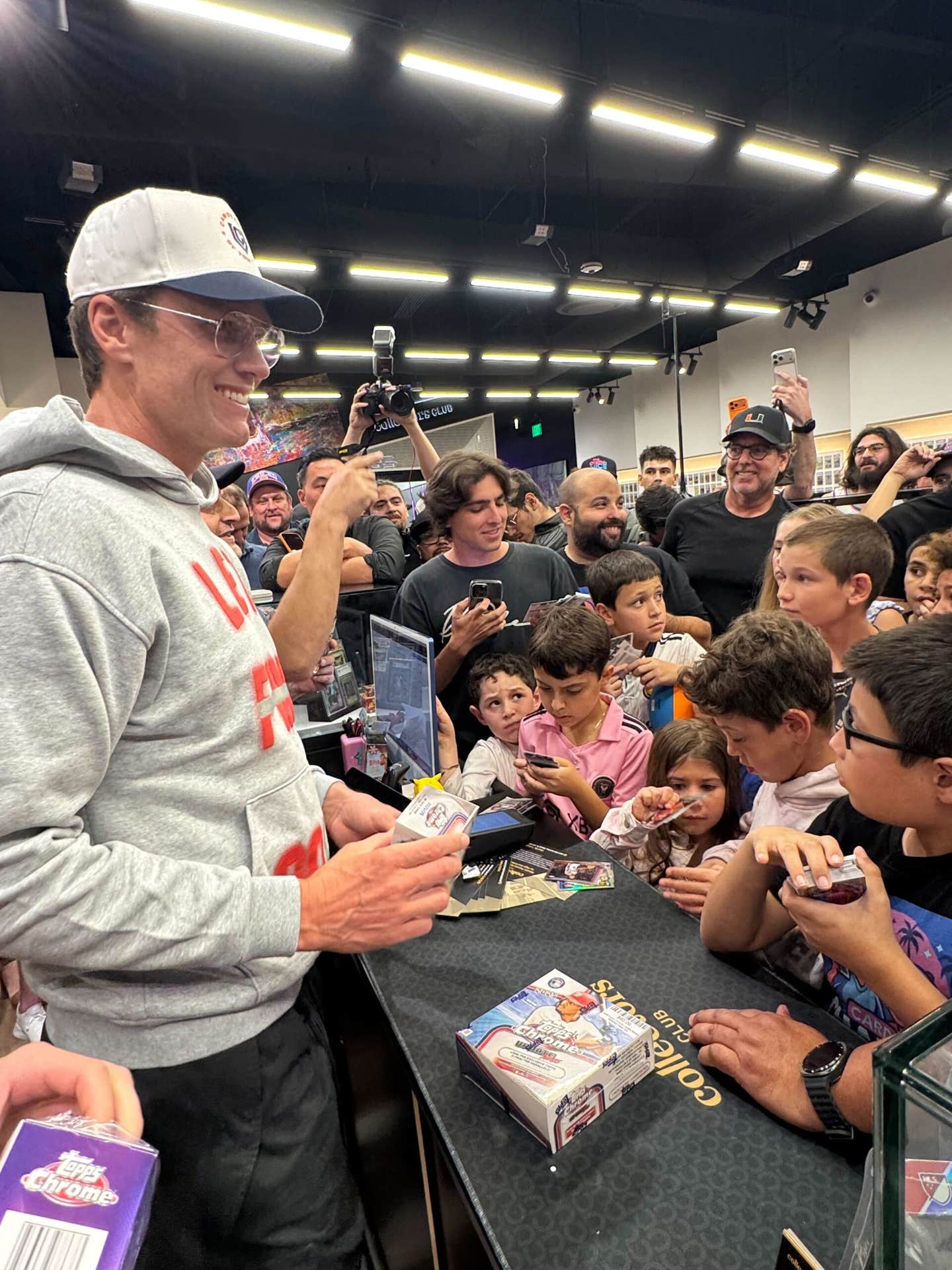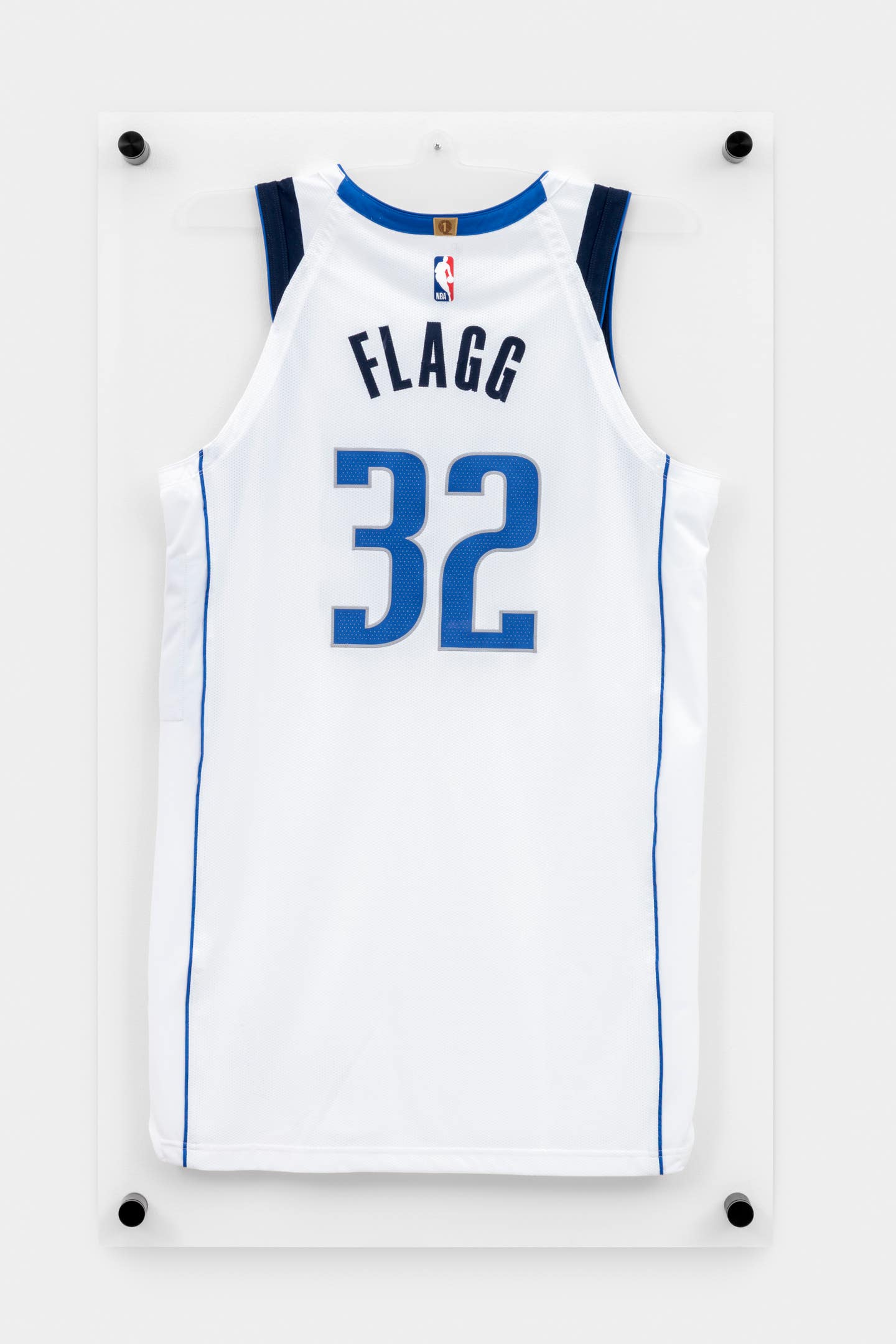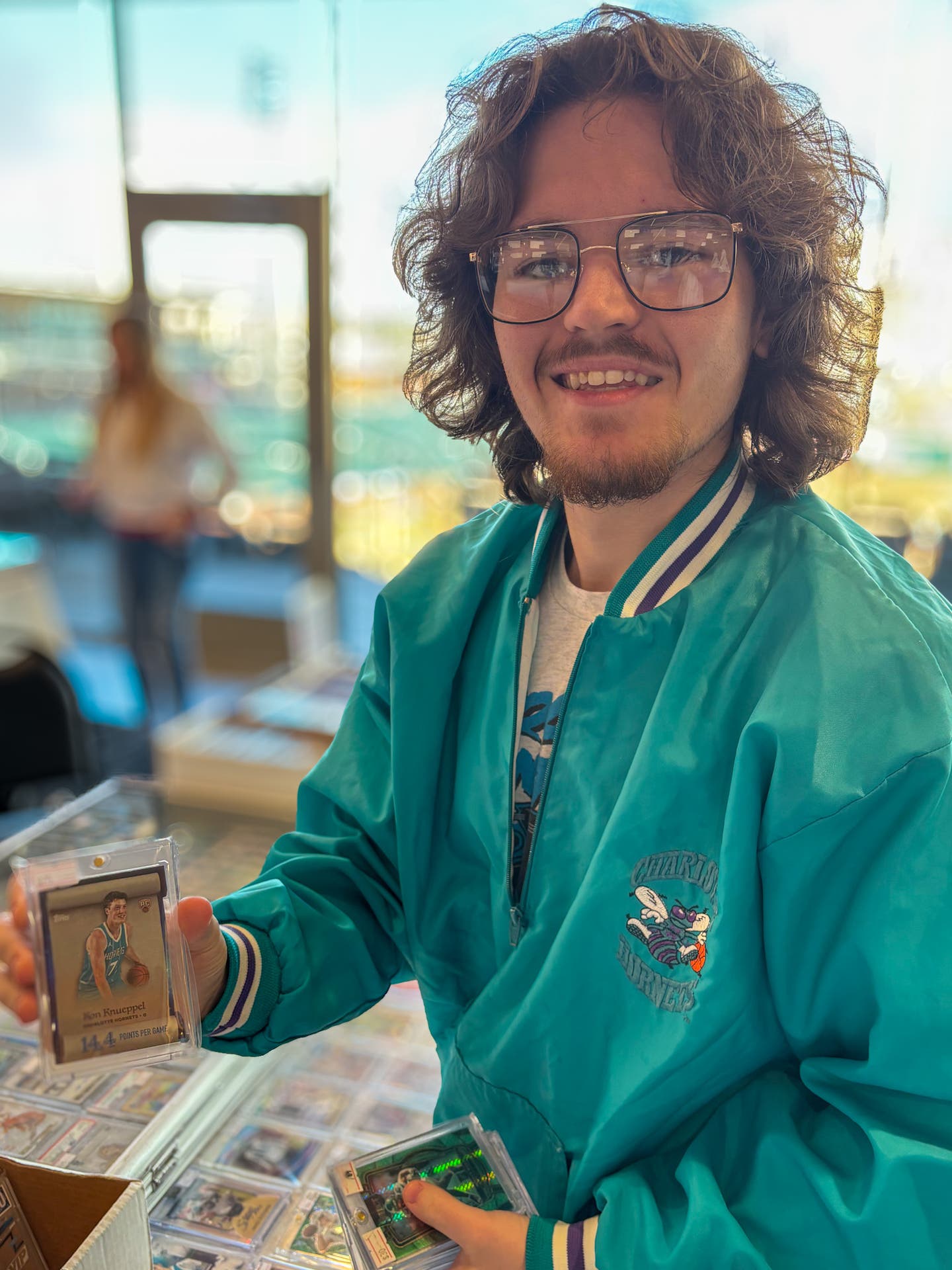Autographs
BREAKING NEWS: Sports memorabilia dealers had been chasing counterfeiter Brett Lemieux for years
In April 2020, through his lawyer, Mill Creek Sports owner Scott Mahlum served Brett Lemieux a cease-and-desist letter to four accounts that sold sports memorabilia.
Lemieux allegedly had been forging autographs of Mahlum’s exclusive athlete, NFL star Russell Wilson. Lemieux also was allegedly faking Mill Creek Sports holographs and certificates of authenticity to accompany the signatures of the Seattle Seahawks quarterback, Mahlum said.
This wasn’t Mahlum’s first go-around with Lemieux. Three to four years earlier, he had sent a similar cease-and-desist letter to the sports memorabilia dealer who rocked the hobby last week with claims of widespread fraud and forgery before killing himself just before police raided his home and business.
But getting threatened with legal action didn’t phase Lemieux.
“We went after him, but he just laughed at it,” Mahlum told SCD.
According to Lemieux, who posted a manifesto in the Facebook group Autographs 101 on July 16, he forged autographs of all the big-name athletes in the industry, including Tom Brady, Patrick Mahomes, Kobe Bryant, and Aaron Judge. Lemieux claims he sold over four million items, raking in $350 million in sales during his 20-year-long operation.
Lemieux—whose main company was named Mister Mancave—had his warehouse in Westfield, Ind., raided by authorities on July 15. The next morning, Lemieux posted his scathing, 1,200-word rant and confession. Lemieux was later found dead in his home.
Related Content:
SCD Investigation: Fraud & forgery in the sports collectibles hobby
Hamilton County coroner Jeff Jellison told SCD that the final cause and manner of Lemieux’s death is pending toxicology testing. However, the Westfield Police Department announced last week that Lemieux’s death was by a self-inflicted gunshot wound.
It isn’t known if the 45-year-old Lemieux typed his Facebook post and then committed suicide or if he scheduled the post to publish following his death. Lemieux made his post at noon ET on July 16.
“Toxicology typically takes two weeks,” Jellison told SCD. “He was found deceased by police and no one witnessed the death; therefore, we do not know an exact time of death. Looking at my deputy’s report, time of death would be estimated some time between 11:58 a.m. and 12:48 p.m. [ET].”
In his Facebook post, Lemieux claims he produced counterfeit stickers and holograms of many of the biggest companies in the industry, including Panini, Fanatics, James Spence Authentication (JSA), Steiner Sports, Mill Creek Sports, and TRISTAR.
Lemieux seemed to have a personal vendetta against plenty of companies and individuals in the industry.
“The names he listed and the companies, I believe those are all the ones that pushed back on him—threatened lawsuits, cease-and-desist, contacted eBay that they were selling fraudulent accounts,” Mahlum said. “He made a big point over the whole TRISTAR thing, because they went after him. They tried to shut him down from selling counterfeit items.”
TRISTAR owner Jeff Rosenberg responded to interview requests from SCD but said he is unable to comment at this time.
WARDING OFF THE ENEMY
Since Lemieux’s post, Mahlum has been receiving messages from customers worried about the authenticity of items they purchased directly from Mill Creek Sports.
“The frustrating thing is a lot of people are reading this manifesto he wrote and they don’t understand. A lot of people just think he was selling to us and our companies,” said Mahlum, whose card shop is located just outside of Seattle in Mill Creek, Wash. “No, we never bought from him. He counterfeited our Russell Wilson hologram. I don’t have any proof if he ever did Ichiro (another Mill Creek Sports exclusive athlete); it’s a pretty intricate autograph. I’ve never seen it. Would I be shocked if he did it? No. Heck, no.”
When Mahlum was doing his own investigation into Lemieux, he bought a few memorabilia pieces through marketplaces outside of Lemieux’s Mister Mancave website.
“We checked the items and the autographs were really good,” Mahlum said. “I don’t think they were auto pens when we first saw that six or seven years ago. But they were really good forgeries. We could tell the holograms were copied and we could tell the difference in the hologram more than anything else.”
When Mahlum’s lawyer served the cease-and-desist letter in 2020, it was served to Lemieux’s businesses under the names mistermancavellc, Mr. Mister Mancave, Mancave Collectibles, and Signature Dog. Lemieux also sold items on Facebook under the name Nick Williams and had an eBay account, Break The Bank Autos.
According to Mahlum, Lemieux tended to sell fake items on marketplaces that aren’t known for sports memorabilia.
“He would sell them a little bit on eBay, but his biggest thing he ever did was Amazon,” Mahlum said. “The money trail’s going to tell where it was sold. My best guess is in the last five years is that a huge number of products were going to breakers. It’s guys that are buying it on the internet. It’s a mystery. It’s all sealed, so no one knows how much of this stuff got pushed through.
“For breakers customers, it’s a lot of novices, a lot of people with a gambling mentality; they’re not hardcore and really educated buyers for the most part. They would sit at home and watch these different breaks and they would be ecstatic. They’d get a Tom Brady and they’d think it was worth $2,500. The whole thing is a piece of junk. They’re just a victim in this whole thing.”
UNREALISTIC NUMBERS
In Lemieux’s manifesto, he prominently bragged about his company selling over four million forged items and surpassing $350 million in sales.
Mahlum said those numbers really stood out to him. They are unrealistic and inflated, he noted.
“It’s so far-fetched it’s out of this world,” Mahlum said. “The one thing he talks about [is] Kobe Bryant, and he only died a few years ago, and he had sold 80,000 pieces when he died. And Kobe items went from instantly there was nothing less than $2,000, $3,000, $5,000, depending on what kind of piece it was. Let’s just take it that [Lemieux] did 80,000 pieces and sold them for $1,000, that’s $80 million in sales. There’s just no way you can move that many pieces on Kobe Bryant. It’s impossible.”
Mahlum thinks Lemieux sold a smaller fraction of what he boasted about in his Facebook manifesto.
“Even if it was 10 to 20 percent of some of the numbers he threw out there, it’s disturbing. It really is,” Mahlum said. “But I don’t think there’s any way possible that the numbers he gave can be accurate. I think he was just trying to go out in a blaze of glory and really try to make a splash. It’s crazy to me that he thinks he’s a hero in this or a big shot. It’s nuts. He was just a criminal.”
Mahlum is glad Lemieux’s elaborate operation is done. But he knows this could open the floodgates for other forgers at a larger scale.
“My biggest fear is that other criminal enterprises that are a lot more sophisticated, a lot bigger—this is a guy working out of his house and a small warehouse—will start up,” Mahlum said. “My fear is big rings out of maybe China or Russia. The amount of Russian things going on, they find out that there are millions to be made, it could be wild, wild west. That’s our biggest fear.”
TIED TO ANOTHER FORGER?
The Lemieux case isn’t the first time Mahlum has had to deal with a forger faking one of his exclusive athletes. In 2020, Mahlum divulged to SCD that Wendell Rogers, who lives in McKinney, Texas, had been forging Russell Wilson autographs. After a years-long investigation, Rogers—who was then going by one of his aliases, Wendell Gidden-Rogers—and an accomplice, Lisa Skolnick, were arrested in January 2025. Rogers is currently out on bond and awaiting a court date.
Mahlum has a hunch Lemieux could have been a disciple of Rogers’ school of forgery.
“We would really like to know if [Lemieux] first got set up with Wendell Rogers,” Mahlum said. “Before Wendell Rogers came along, all these forgers would do is they would forge up a photo and jersey and then they would try to get a third party to authenticate it. So, they would try to get PSA, JSA to authenticate it. Wendell Rogers is the first guy that I knew—and it’s been 11 years, 12 years now—he would copy Steiner’s, Mounted Memories, TRISTAR, PSA, JSA holograms and their certs [certificates of authenticity], go into their database, match the numbers up, print the stickers with those.
“So, he knew all Tom Brady mini-helmets. So, once he sold a Tom Brady mini-helmet, you would receive it. Say it was TRISTAR, you’d go on TRISTAR’s database, punch in the number and it would say, ‘Tom Brady mini helmet.’ You’re like, ‘Oh, perfect. End of story.’ You never thought twice.”
According to Mahlum, Rogers was known to take out advertisements on Craigslist inquiring about people looking for a job. Rogers would set up forgery operations in different areas in the country, start-up eBay accounts and have others sell his items.
Mahlum wonders if that’s where Lemieux steps into the equation. Lemieux and Rogers had a similar mode of operating.
“Is there a really good chance that Wendell Rogers is the one that kind of got Lemieux into this and took him to this level? There is,” Mahlum said. “The weird thing is, [Lemieux] didn’t mention it in the manifesto. He mentioned some other guy was the source of all this stuff and kind of got him going in this. So, maybe that other guy had something to do with Wendell Rogers.
“It’s going to be really fascinating to see what comes out. I hope it all comes to light. The worst thing will be is if this just gets buried, because there’s really no case now.”
According to the Westfield (Ind.) Police, the investigation is ongoing with assistance from FBI. A spokesperson for the Westfield Police Department said more information could be released this week.








